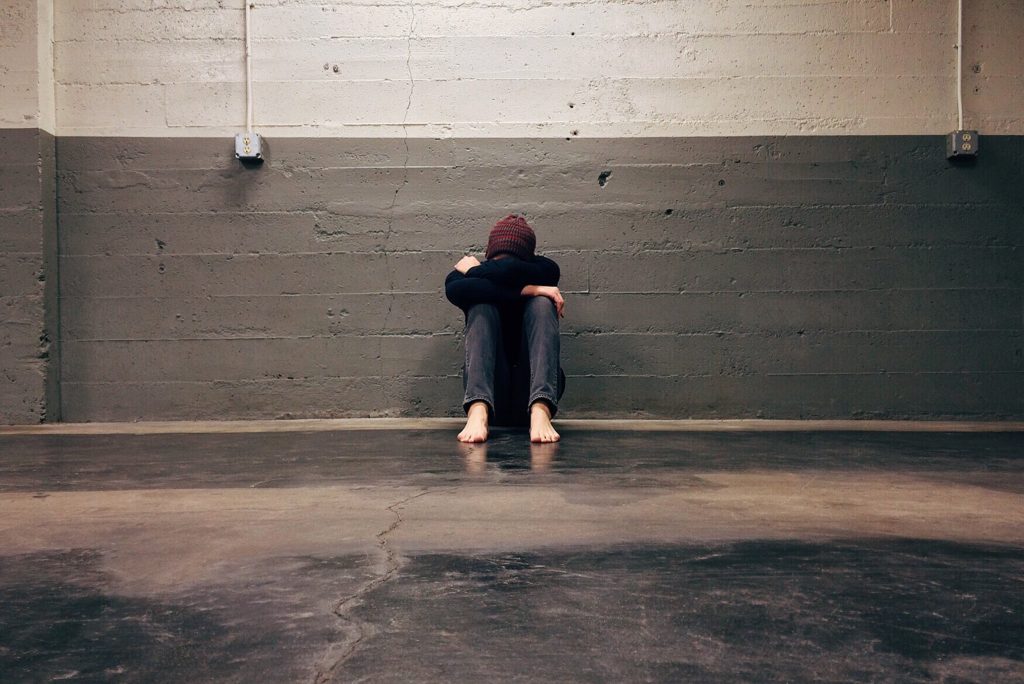Emotional Distance in Relationships
Relationships can be beautiful and fulfilling when you find a dynamic that works for both of you. But they aren’t always plain sailing. Relationships are complex, and there can be a variety of challenges that arise. Today, we are delving into one in particular: emotional distance in relationships.

Relationships can be beautiful and fulfilling when you find a dynamic that works for both of you. But they aren’t always plain sailing. Relationships are complex, and there can be a variety of challenges that arise. Today, we are delving into one in particular: emotional distance in relationships.
To help us better understand the potential dynamics at play in an emotionally distant relationship, let’s dive into what emotional distance is, why it may occur within relationships, what signs to look for, and tips for addressing it.
Defining emotional distance
So first, what is emotional distance in relationships? Emotional distance occurs when one partner begins to emotionally withdraw from the relationship, leading to a lack of intimacy and connection. It is often characterized by a lack of communication, a sense of distance, and feelings of emotional neglect. In an emotionally distant relationship, one or both partners don’t feel close or connected to the other person in a way that meets both of their needs.
There are several potential reasons behind emotional distance, such as stressors in life or a fear of commitment. It’s important to note that emotional distance is not always a sign of unhappiness or a desire to end the relationship, but it does indicate that there are issues that need to be addressed.
While emotional distance is a relatively common challenge in relationships, it can cause profound feelings of pain and hurt that can make it hard to move forward. It isn’t always easy to bounce back from it—when you feel like you have been emotionally abandoned by the person who is meant to be closest to you, it can leave a deep wound that takes time and effort to heal. That’s why it is important to catch it as early as possible and work through it together.
Emotional distance can cause people to feel insignificant because they feel like their partner’s lack of connection is a rejection of them as a partner and that they aren’t worthy of being loved. While this isn’t necessarily the case, it is important to be mindful of how these feelings can impact someone’s overall sense of self-worth. It isn’t an irrational reaction by any means. When a partner pulls away, it can be scary and confusing.
9 Signs of emotional distance
So, what are the signs of emotional distance? Let’s take a look.
1. Lack of communication.
Communication is the foundation of any healthy relationship. It’s not just about exchanging information but also about building trust and understanding. When two people share an emotional bond, they are willing to share their feelings, their day-to-day happenings, and the things that matter most to them.
However, when there is a lack of communication, even the tiniest issues can pile up into a mountain of rifts. A lack of communication in a relationship is one of the clearest signs of emotional distance. After all, how are you supposed to stay connected if you don’t talk about anything?
2. Withdrawing from activities.
When one partner withdraws from activities once enjoyed in the relationship, it can be a sign of emotional distance. This is especially true if there has been no overt discussion about it or no change in interests. While withdrawing from activities may not seem like a big deal, it can be a sign that the person is trying to distance themselves from the relationship as a whole or that they are struggling with a deeper issue individually that is causing them to pull away.
Of course, withdrawing from certain activities doesn’t necessarily mean that emotional distance is present. It’s normal to go through phases of interest levels in certain activities. But it can be a good indicator when taken in combination with other signs.

3. Avoiding difficult conversations.
If one partner is avoiding tough conversations, it can indicate that there is emotional distance in the relationship. Difficult conversations are a necessary part of any healthy relationship. It’s far better to face issues head-on and discuss them openly rather than brush them under the rug.
If one partner is avoiding these conversations, it may be a sign that they aren’t in a good place or don’t feel like they have a safe space to open up. Either one of these scenarios indicates that there are issues that need to be worked on. The irony is that avoiding these conversations can actually lead to further emotional distance in the relationship.
4. Lack of physical intimacy.
Physical and emotional intimacy go hand in hand, so if one partner begins to withdraw from physical intimacy, it can also be a sign of emotional distance. But why is this? Well, the answer lies in the fact that physical touch and closeness can serve as a way to show love and affection beyond words.
Physical intimacy, such as hugging, cuddling, and sexual intimacy, can foster a sense of connection between two people. When we’re emotionally close to someone, we’re usually comfortable with physical touch and express affection instinctively. So if there’s a lack of physical intimacy, there may also be issues with the emotional connection.
5. Absence of empathy.
Empathy is the cornerstone of emotional connection in any relationship, be it romantic, professional, platonic, or even a casual interaction. It is the ability to understand the feelings of another person and walk in their shoes. By doing this, we are able to offer support and comfort when needed. When empathy is absent, it completely changes the dynamic of a relationship.
A lack of empathy is a clear sign that there are issues with the emotional connection in the relationship, as it shows that one partner isn’t able to understand the feelings of the other or doesn’t care to. Essentially, the absence of empathy indicates a lack of emotional investment and concern for the other person’s well-being, which is a sharp contrast to the warmth and care required for a healthy relationship.
6. Spending a lot of time apart.
Relationships are complex and often require a delicate balance of time spent together and apart. However, if you find yourself spending a lot of time apart from your partner, it could be a sign of emotional distance. When two people truly care about each other, they want to spend time together and share experiences. It’s quite simply a natural part of being in a relationship, and it can help to deepen a connection.
When one partner pulls away and spends more time alone or with other people, it can indicate emotional distance. In particular, if one partner constantly makes excuses not to be around their significant other, it may be a sign that something is amiss. It’s worth noting that time spent together doesn’t have to involve being physically together. Talking on the phone, video chatting, and texting can all be forms of communication that help keep two people emotionally connected, particularly in long-distance relationships.
7. Loss of interest.
A deep connection in a relationship involves showing interest in your partner’s life, such as their hopes, dreams, and aspirations. When we are truly invested in someone, we’re naturally curious about them. For example, how their day went, what they’re reading, or their thoughts on a topic.
If that interest fades away, it can be a cause for concern. A healthy partnership is not just about romance and passion. It’s also about listening and being there for one another. No relationship can survive without the foundation of friendship, and neglecting to show interest in your partner’s life can quickly erode that basis. So, if you notice that your partner isn’t showing much interest in what you’re saying or doing, it can indicate that there is emotional distance in the relationship.

8. Feeling lonely and isolated.
Feeling lonely or isolated can be a warning sign of emotional distance in a relationship. It’s normal for people to feel lonely at times, even while in a relationship. But if these feelings persist, it might be worth taking a step back to consider whether your romantic relationship is providing the necessary emotional support and connection. It’s simply not enough that someone is physically present.
We need to feel emotionally connected in order for a relationship to thrive. It’s very possible to feel completely alone even when we are in a relationship involving emotional distance. In fact, in some ways, you can feel even more isolated in a relationship that involves emotional distance than when you are alone.
9. Feelings of rejection.
When our attempts at connection are consistently met with disinterest, it’s easy to start feeling distant and lonely. For example, if you ask your partner how their day was and they ignore you or brush it off with a one-word answer, it’s a sign that they aren’t engaging in the conversation. This type of behavior can make it difficult to feel connected.
Regular rejection from your partner can also create a sense of insecurity and self-doubt, which can lead to even more emotional distance. Relationships flourish when both parties strive to show each other love, respect, and companionship. They require a balance of give and take. When one partner is constantly on the receiving end of rejection, it can be deeply damaging.
Reasons for emotional distance
Emotional distance in a relationship can be caused by a variety of factors, either relating to the individual or the relationship as a whole. Here are some of the most common reasons for emotional distance.
1. Emotional unavailability.
For starters, if one partner isn’t emotionally available due to their own issues, such as unresolved trauma or mental health challenges, it can make it difficult for them to connect with their partner on an emotional level. They may put up walls to protect themselves from potential pain. This, in turn, can hinder the development of a deeper connection.
2. Communication issues.
Communication issues can contribute to emotional distance, such as a lack of active listening, absence of emotional expression, or avoidance of difficult conversations. These can all lead to misunderstandings and unmet emotional needs. When one partner feels unheard or misunderstood, they may withdraw emotionally to avoid further frustration or disappointment. Over time, this pattern of ineffective communication can create emotional distance and erode the bond between partners.

3. Life circumstances.
External stressors and life changes can impact emotional closeness, too. Factors like work-related stress, financial pressures, or family conflicts can consume significant mental and emotional energy. They can draw attention that would otherwise be given to nurturing the relationship. If someone is preoccupied with individual challenges, they may inadvertently neglect the emotional needs of their partner, contributing to a sense of distance in the relationship.
4. Resentment and anger.
Resentment and anger are two powerful emotions that commonly create emotional distance. If one partner feels hurt by something the other has done, they may start to push the other away to protect themselves from further hurt or disappointment. Long-simmering resentments can also cause emotional distance, such as one partner feeling unappreciated. In some cases, the resentment stems from a significant event, such as infidelity. But it can also be caused by seemingly minor actions, such as not helping with household chores. However, seemingly “minor” actions usually indicate a deeper issue, such as disrespect or a power imbalance. Generally, if someone’s needs consistently aren’t being met in a relationship, resentment can arise and lead to emotional distance.
5. Fundamental incompatibility.
In some cases, fundamental incompatibility between two people can also create emotional distance. We aren’t compatible with everyone we meet. In some cases, a relationship may simply not be fulfilling for various reasons. It doesn’t mean that the relationship wasn’t fulfilling at one point—people grow and change, and in some cases, two people may simply no longer be compatible. This can be a difficult situation, but it’s important to remember that emotional distance doesn’t always indicate a lack of love. It can simply mean that the relationship has run its course.
How to deal with emotional distance
Addressing emotional distance in a relationship requires a conscious effort from both partners to bridge the gap and rebuild emotional intimacy. The first step is open and honest communication. Both people should strive to create a safe and supportive space where each partner can express themselves without fear of judgment or criticism.
Active listening and empathy are vital during these conversations to truly understand each other’s perspectives and emotions. It’s important to try to avoid blame and defensiveness. Emotional distance can cause a lot of anger, hurt, and resentment. But nonetheless, it’s important to empathize with your partner and think about the situation from their perspective. This will give you the best chance of finding the best path forward.
Think of yourselves as a team trying to work through the issue together. You need to understand why the emotional distance exists in the first place. We discussed several common reasons earlier, and you can use these as a guide, but every relationship is unique. So, there may be other factors at play.
Once you understand the root cause of the emotional distance, you can start to take steps toward rebuilding your emotional bond, assuming you are both committed to doing so. This may involve setting aside time for meaningful conversations, engaging in shared activities that you both enjoy, or simply taking the time to express appreciation for one another.

If the emotional distance is too difficult to bridge on your own, seeking couples counseling or therapy can help. A therapist can provide practical advice and strategies to help you understand the cause of the emotional distance so you can potentially work through and build a healthier, more fulfilling relationship. Emotional distance in relationships is difficult but not insurmountable if both parties want to make it work.
Remember that addressing emotional distance is a process that requires patience and commitment. It needs a shared desire to nurture the relationship back to a place of emotional connection and fulfillment. It isn’t an overnight process, but love can be worth the effort.
Final thoughts on emotional distance
To summarize, emotional distance in a relationship isn’t uncommon, but it can be deeply damaging if left unaddressed. It can be hard to navigate and take time to fix. But it doesn’t have to spell the end of the relationship.
So if you’re experiencing emotional distance, don’t hang around waiting for it to fix itself. We have a limited time on earth, and relationships are an important aspect of life. In particular, the quality of our relationships greatly impacts our mental health.
Last but not least, we talk about emotional distance in the context of it being too wide, but it’s also important to remember that it can be too close. We always need to strike a balance between being emotionally connected and maintaining our independence.
If you liked this post, you might also enjoy our article about being emotionally detached.




